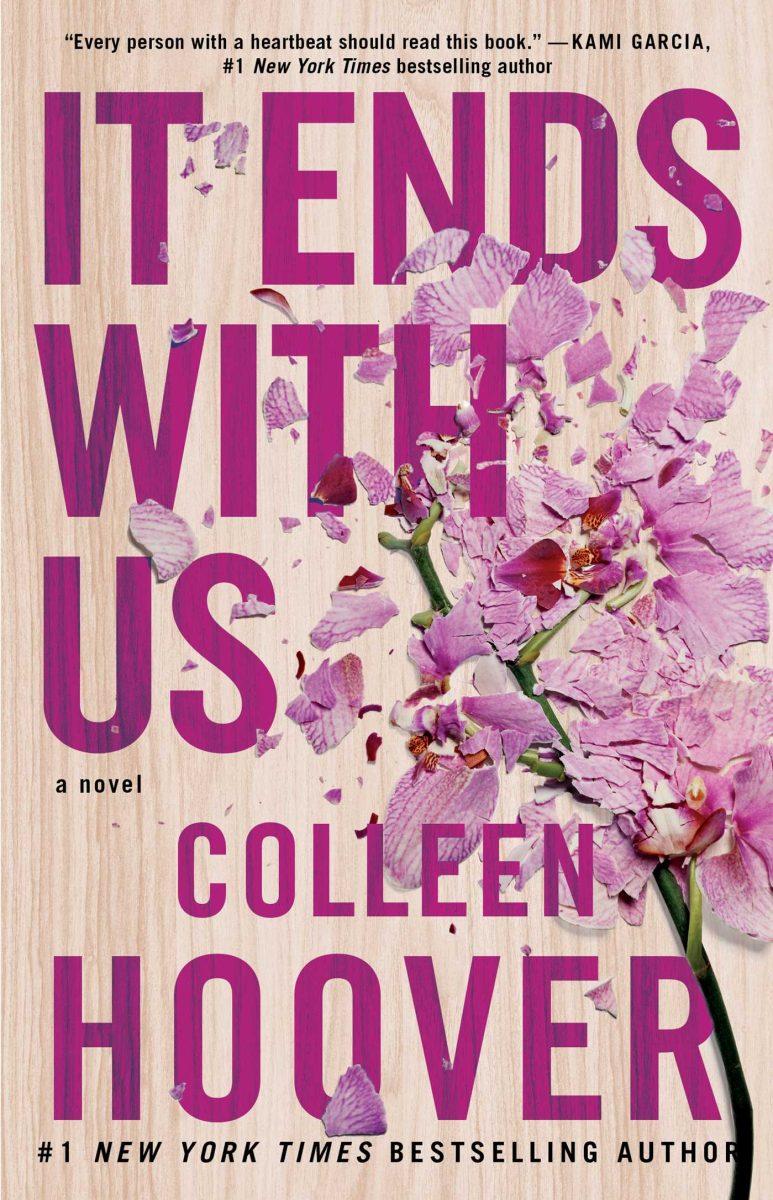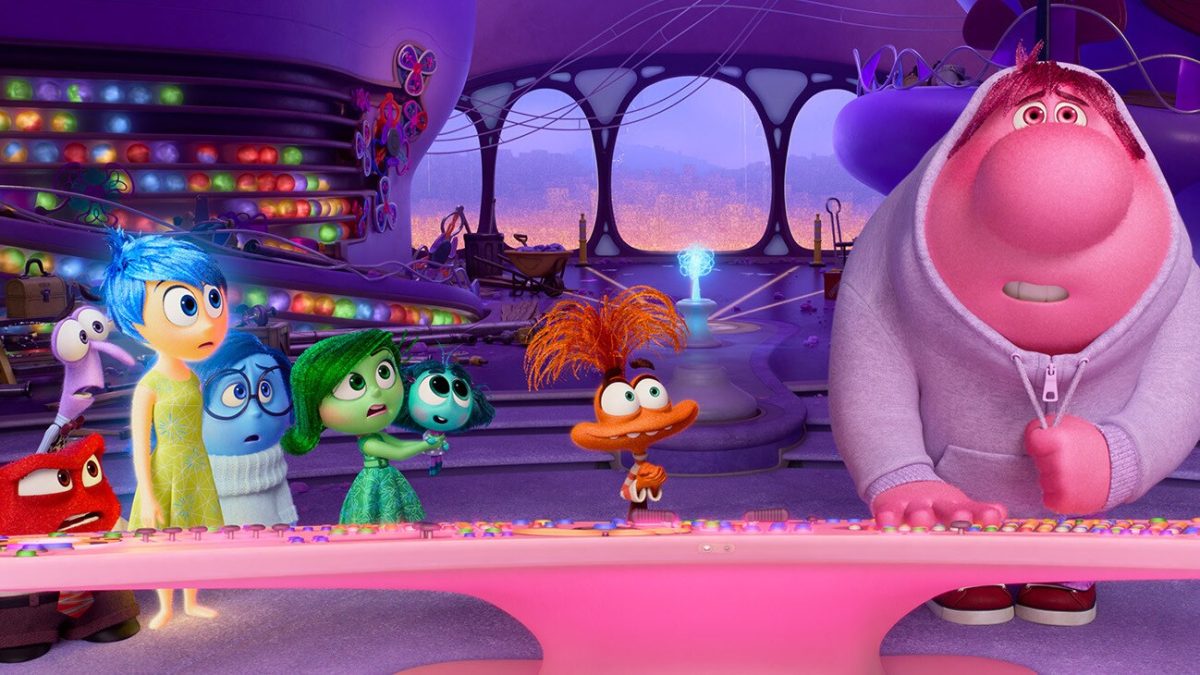(Photo from Goodreads)
This article contains spoilers and mentions of murder and sexual violence.
Despite the very real and imminent danger of angry Colleen Hoover fans beating down my door, I must confess that I absolutely hate Hoover’s books. Chances are that you’ve seen Hoover’s novels recommended more than once, but after reading them, I can say that they are entirely overhyped.
In short, ever since I began reading them, Hoover’s novels have been competing for spots at the bottom of my Goodreads totem pole. Here are my thoughts on some of Hoover’s most popular works. Spoiler alert: I despised them all.
“Verity” – 2.5/5 crabs
As is the case in many of Hoover’s books, some random dramatic event brings two cookie-cutter characters together. In “Verity,” Lowen and Jeremy are introduced after someone is hit by a car in front of them. Of course, this incident is never brought up again because it was clearly only a plot device to get the two acquainted.
Jeremy is married to Verity, a world-renowned author who was tragically injured in a car accident and is now in a vegetative state. He hires Lowen, a writer herself, to finish writing Verity’s book series. As she works, Lowen finds Verity’s diary, in which Verity reveals that she murdered her daughter.
While the novel’s premise is interesting, the story progressed entirely too slowly — Lowen spent weeks reading a handful of diary entries which could have been finished in an afternoon. Additionally, Hoover had Lowen stop after each entry to offer her own thoughts, which I found repetitive and unnecessary. Yes, Verity trying to murder her children is horrifying — move on, Lowen.
Honestly, my favorite character in this book was Verity — murderous tendencies aside, of course. Not many people would be able to successfully fool everyone, including medical professionals, into thinking she was in a vegetative state for months. I also applaud Verity for traumatizing Lowen on multiple occasions; every woman should strive to drive their cheating husband’s mistress to madness.
Of course, no Colleen Hoover book would be complete without a bland romance, and Hoover really outdid herself with this one; Lowen and Jeremy perfectly complemented each other with their matching wet piece of cardboard personalities.
“November 9” – 2/5 crabs
“November 9” is a romance novel about Ben, your average good-looking guy, and Fallon, an ex-child actress with extensive burn scars from a fire a few years prior. After a chance meeting, the two make a pact to meet up every Nov. 9 for the next five years, with no contact on any other day of the year. That is precisely where the problem arises for me — by the end of the five-year period, Ben and Fallon haven’t even spent 48 hours together, and Hoover can’t sell me on the idea that the two are actually in love.
During the brief time that they do spend together, their relationship follows a pattern of Ben pressuring Fallon into doing things she isn’t comfortable with, making her cry, and then having Fallon suddenly realize that she is beautiful despite her scars. Personally, I fail to see how Ben’s refusal to get Fallon’s consent is romantic in any way.
Manipulation aside, the plot twists in the book are horrendous. How could Hoover have Fallon forgive Ben after discovering that he set the fire that almost killed her and pretended to not know her prior to pursuing a relationship? Let’s not forget that Ben also decided to start dating his dead brother’s wife — and offered to leave her if Fallon would forgive him. Maybe I just don’t understand romance, or maybe Hoover missed the mark with this book as well.
“It Ends with Us” & “It Starts with Us” – 2/5 crabs
Like most of Hoover’s books, the characters lack dimension and have horrible names. “It Ends with Us” features Lily Blossom Bloom, busy flower shop owner, who has a whirlwind romance with equally busy neurosurgeon Ryle Kincaid. However, their relationship quickly deteriorates when Kincaid begins to physically assault Bloom, and the plot is further complicated with the return of Bloom’s childhood love, Atlas Corrigan.
Although Hoover ends the novel with a note that explains its personal significance to her, this does not make the novel exempt from criticism, especially with the heavy topics it brings up. “It Ends with Us” is marketed as a romance novel, but behind the pink cover and misleading synopsis Hoover attempts to explore the topic of domestic violence; this results in a plot that looks at an emotionally and physically abusive relationship through rose-tinted glasses.
“It Starts with Us” follows Bloom’s life after she divorces Kincaid, navigates motherhood, and starts a relationship with Corrigan. I was not a fan of this sequel; in the process of creating happy endings for her characters and giving Bloom a male hero through Corrigan — who essentially did the bare minimum of not abusing his partner — Hoover effectively negated her message from the prequel.
“Ugly Love” – 0.5/5 crabs
Congratulations, Colleen Hoover! You have officially written my worst-rated book of all time. In “Ugly Love” we are introduced to main characters Tate and Miles. Although Miles is clearly not over Rachel — his step-sister-turned-ex-girlfriend — he simultaneously refuses to leave Tate alone and pushes her away. The cycle repeated so many times that I lost count and honestly stopped caring.
Sandwiched between chapters narrated by Tate are snippets of past Miles’ point of view, giving insight into his short-lived and unfortunate relationship with Rachel. It almost seemed like Miles had so little to say in these chapters that Hoover had to chop up his sentences into poorly written poetry, turning him into an amateur Shakespeare.
While I felt somewhat bad for Tate since she was constantly competing with Miles’ past love interest — whom Tate was never really told about — she also let herself be treated like a complete doormat. For example, Tate says, “If any other man ever treated me like he did, it would be the one and only time… However, I find myself continuing to make excuses for him, like something could actually justify his actions last week.” Miles never had a valid excuse for his actions — yes, he had a tragic past, but that didn’t make Tate his therapist and emotional punching bag.
The end of this book couldn’t come soon enough, and it was just as bad as I was expecting. Hoover used the classic trope of ‘hero messes up terribly, but heroine forgives them after one apology,’ and I don’t know about you, but I would like to see Hoover’s male characters do some groveling.































